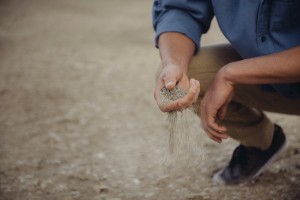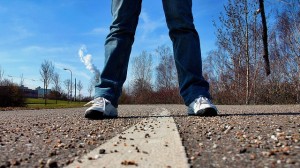- Calls to this hotline are currently being directed to Within Health or Eating Disorder Solutions
- Representatives are standing by 24/7 to help answer your questions
- All calls are confidential and HIPAA compliant
- There is no obligation or cost to call
- Eating Disorder Hope does not receive any commissions or fees dependent upon which provider you select
- Additional treatment providers are located on our directory or samhsa.gov
Males, Anorexia, and Physical Side Effects
Contributor: Elissa Rosen, MD. Elissa is a board certified Internal Medicine physician who works at the ACUTE Center for Eating Disorders at Denver Health Hospital in Denver, Colorado.

Sadly, men tend to seek treatment later in their diagnosis given continued gender stereotypes. This means they are often sicker when they finally do seek medical attention. Men with anorexia are also more likely than women to be overweight prior to developing their eating disorder and more likely to over exercise (2).
In this blog, we will discuss the many physical side effects experienced by men with anorexia. If you are a male and struggle with anorexia, you are not alone. And the physical side effects you are feeling can be improved with treatment.
Physical Side Effects
Chronic starvation caused by anorexia can cause a host of physical side effects in men including:
- Low energy
- Slow and irregular heart beat
- Feeling cold
- Dry skin
- Hair loss
- Weakness
- Broken bones
- Fullness
- Bloating
- Constipation
- Decreased sex drive
- Depression
- Anxiety
- Substance abuse
- Insomnia
Low Energy

Slow or Irregular Heart Beat
As mentioned above, heart rate slows down in men with anorexia. This can lead to dizziness as there is less circulating blood reaching the brain. Sometimes, men may also feel like their heart is skipping a beat. Starvation can occasionally cause the heart to beat in an irregular way. Irregular heart beats can be dangerous and should be evaluated by a medical professional.
Feeling cold, Dry skin, Hair loss
When someone is starving and not getting enough nutrition, body temperature also lowers to conserve energy. This causes men to feel cold all the time. Skin also becomes dry and hair can fall out because there is not enough nutrition to keep hair and skin cells healthy.
Weakness and Broken Bones

Lower levels of testosterone also lead to bone loss. Men with anorexia develop osteoporosis, a disease of very thin bones that is usually seen in the elderly, at faster rates than women with anorexia (3). This means men can break bones very easily. Sometimes the bones of the spine can break, even without a fall or trauma, leading to a decreased height.
Fullness, Bloating, Constipation
Weight loss causes the digestive tract to slow down. Men with anorexia feel full easily even with small meals. This is because food is digested more slowly and takes longer to empty from the stomach. Slowed digestion can also lead to bloating. Fullness and bloating can make it challenging for men with anorexia to try to increase their calorie intake on their own. Constipation can also occur.
Decreased Sex Drive
Sex drive (libido) is also decreased in men with anorexia. This is also due to low levels of the hormone testosterone, which helps men have a healthy sex drive. Men often become less interested in sexual interactions.
Depression and Substance Abuse

As you can see, there are many physical side effects of eating disorders in men. Increasing nutritional intake through structured treatment can reverse most of these symptoms. If you or someone you know is a male with signs of an eating disorder, encourage them to seek help!
Community Discussion – Share your thoughts here!
How do you think that we, as an eating disorder community, can raise awareness of eating disorders in men?
The opinions and views of our guest contributors are shared to provide a broad perspective of eating disorders. These are not necessarily the views of Eating Disorder Hope, but an effort to offer discussion of various issues by different concerned individuals.
Resources:
- Hudson, J. L., Hiripi, E., Pope, H.G, & Kessler, R. C. (2007). The prevalence and correlates of eating disorders in the national comorbidity survey replication. Biological Psychiatry, 61, 348-358.
- Gueguen, J., Godart, N., Chambry, J., Brun-Eberentz, A., Foulon, C., Divac, S.M., Guelfi, J.D., Rouillon, F., Falissard, B., & Huas, C. (2012) Severe anorexia nervosa in men: comparison with severe AN in women and analysis of mortality. International Journal of Eating Disorders. 45: 537-545.
- Philip S. Mehler and Arnold E. Andersen. Eating Disorders: A Guide to Medical Care and Complications, 2nd edition. The John Hopkins University Press, 2010.
Last Updated & Reviewed By: Jacquelyn Ekern, MS, LPC on April 18th, 2015
Published on EatingDisorderHope.com
